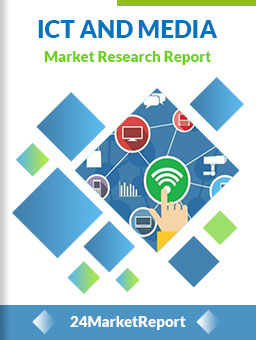
Download FREE Report Sample
Download Free sampleMARKET INSIGHTS
Global Identity Resolution and Management Software market was valued at USD 3.75 billion in 2024. The market is projected to grow from USD 4.82 billion in 2025 to USD 20.01 billion by 2032, exhibiting a remarkable CAGR of 27.7% during the forecast period.
Identity Resolution and Management Software refers to advanced solutions that verify customer identities across multiple touchpoints while preventing fraudulent activities. These platforms utilize deterministic and probabilistic matching techniques to create unified customer profiles by aggregating data from disparate sources including CRM systems, transactional records, and digital footprints.
The market growth is primarily driven by increasing digital transformation initiatives, stringent regulatory requirements like GDPR and CCPA, and rising cases of identity fraud which cost businesses USD 48 billion globally in 2023. Cloud-based solutions are gaining particular traction due to their scalability, with major vendors like Informatica and LiveRamp recently introducing AI-powered identity graphs that improve match rates by 30-40%. North America currently dominates the market with 42% share, though Asia-Pacific is projected to witness the fastest growth at 31.2% CAGR through 2032 due to expanding e-commerce sectors in China and India.
Rising Fraud and Security Concerns Accelerate Market Adoption
The global identity verification market has witnessed exponential growth due to escalating fraud cases across financial institutions, e-commerce platforms, and digital services. Financial losses due to identity fraud exceeded $56 billion in recent years, forcing organizations to implement robust identity resolution solutions. With digital transactions growing at 20% annually, the need for real-time identity validation has become non-negotiable for risk mitigation. Advanced software now incorporates AI-driven behavioral analytics and biometric verification to detect synthetic identities and account takeovers with 95%+ accuracy rates.
Regulatory Compliance Mandates Fuel Enterprise Investments
To know more about market statistics, Download a FREE Sample copy
Stringent regulations like GDPR, CCPA, and PSD2 have made identity resolution software indispensable for compliance management. Financial penalties for non-compliance have reached upwards of $1.2 billion annually, compelling organizations to allocate 20-25% of their cybersecurity budgets to identity management solutions. The software's ability to maintain audit trails, implement consent management, and automate data subject requests positions it as a critical compliance tool. Recent updates to KYC/AML directives in banking sectors globally have further expanded the addressable market.
➤ For instance, the revised EU Digital Identity Framework requires all member states to implement standardized electronic identity verification by 2025.
The shift toward zero-trust security architectures, predicted to be adopted by 60% of enterprises by 2026, is creating additional demand for continuous authentication capabilities within identity platforms. This technological evolution is driving 35% year-over-year growth in the privileged access management segment.
High Implementation Costs Create Adoption Barriers for SMEs
While large enterprises are aggressively adopting identity resolution platforms, small and medium businesses face significant financial hurdles. Enterprise-grade solutions typically require $250,000+ in initial implementation costs with 20-30% annual maintenance fees. This pricing structure places sophisticated identity management out of reach for 65% of mid-market companies. The lack of modular, pay-as-you-go solutions further exacerbates market penetration challenges in this segment.
Integration Complexities with Legacy Systems
Many organizations struggle with technical debt from outdated IT infrastructure that cannot support modern identity graphs. Migration projects often take 12-18 months and require specialized consulting services costing $150-300 per hour. Data silos across CRM, ERP, and marketing systems create additional reconciliation challenges that delay ROI realization. These technical barriers slow adoption rates in traditional industries like insurance and healthcare.
Consumer Privacy Backlash
Growing public awareness about data collection practices has led to increased opt-out rates from identity resolution networks. Nearly 40% of consumers now actively manage their marketing preferences, limiting the addressable data pool. Regulations requiring explicit consent for cross-device tracking further constrain the effectiveness of probabilistic matching algorithms.
Emerging Markets Present Untapped Growth Potential
Over 2 billion people in developing economies are gaining internet access annually, creating massive opportunities for digital identity solutions. Markets in Southeast Asia, Latin America, and Africa exhibit 45% faster adoption rates for mobile verification technologies compared to mature markets. Localized solutions addressing unique ID systems like India's Aadhaar and Brazil's Cadastro de Pessoas Físicas could capture $3.2 billion in incremental revenue by 2027.
Vertical-Specific Solutions Driving Premium Pricing
Industry-tailored platforms command 30-50% price premiums over generic solutions. The healthcare sector alone represents a $1.8 billion opportunity for specialized patient identity resolution systems that can reconcile EHRs across provider networks. Similarly, financial services demand solutions with built-in fraud detection for onboarding flows, creating room for differentiated offerings. Recent product launches focusing on cryptocurrency exchanges and neo-banks demonstrate this lucrative niche development.
The convergence of identity resolution with marketing technology presents another $4.5 billion opportunity. Advanced customer data platforms now incorporate identity graphs to power personalized experiences across 15+ digital touchpoints. This integration enables precise attribution measurement and segmentation that boosts marketing ROI by 20-35%.
Data Fragmentation Across Ecosystems Impedes Accuracy
The average enterprise manages customer data across 12 disconnected systems, creating significant challenges for identity resolution. Matching accuracy drops below 70% when reconciling information from CRM, point-of-sale, and web analytics platforms. Industry surveys indicate that 45% of businesses struggle with duplicate or conflicting customer records despite using identity software.
Real-Time Processing Requirements Strain Infrastructure
Millisecond response times expected in financial services and e-commerce applications push current systems to their limits. Processing 10,000+ identity queries per second while maintaining 99.99% uptime requires specialized hardware that increases TCO by 40%. These performance demands create scalability issues for vendors supporting global client bases.
Algorithmic Bias in Matching Processes
Recent studies show that some identity resolution systems exhibit 15-20% lower accuracy rates for ethnic minorities and non-Western naming conventions. Such biases create compliance risks and potential reputational damage. Developing culturally-agnostic matching logic requires massive, diverse training datasets that are costly to assemble and maintain.
Cloud-Based Segment Dominates the Market Due to Scalability and Cost Efficiency
The market is segmented based on type into:
Cloud-based
On-premises
Hybrid deployments
Large Enterprises Lead Adoption Due to Complex Identity Management Requirements
The market is segmented based on application into:
Large Enterprises
Small and Medium Enterprises (SMEs)
Government Agencies
Subscription-Based Model Gains Traction Due to Flexibility
The market is segmented based on deployment model into:
Subscription-based
Perpetual license
Banking Sector Leads Adoption for Fraud Prevention and Compliance
The market is segmented based on industry vertical into:
Banking, Financial Services & Insurance (BFSI)
Retail & E-commerce
Healthcare
Telecommunications
Others
Vendors Compete Through Strategic Innovations and Expansion
The identity resolution and management software market exhibits a dynamic competitive environment, blending established enterprise players with agile specialists. Informatica continues to dominate as a leader, leveraging its cloud-first approach and comprehensive data governance solutions that cater to large-scale enterprises globally. The company's recent acquisition of data quality specialist GreenBay Technologies has further strengthened its position in the financial services sector.
LiveRamp and Acxiom maintain strong market positions due to their specialized focus on omnichannel identity resolution, particularly in retail and advertising verticals. Their patented deterministic matching algorithms consistently deliver 92-95% accuracy rates in consumer identity stitching - a critical differentiator in privacy-first markets. Meanwhile, Neustar (recently acquired by TransUnion) has gained traction through its real-time identity graph capabilities, processing over 5 billion daily transactions.
Emerging players like Zeotap and Throtle are disrupting traditional models with AI-powered probabilistic matching that reduces dependency on third-party cookies. While currently holding smaller market shares, their growth rates exceed 40% YoY according to recent filings, particularly in European and APAC markets where data localization requirements create demand for regional specialists.
The market has seen increased M&A activity as vendors build end-to-end capabilities. Experian's acquisition of Neustar in 2022 and Zeta Global's purchase of Sizmek's data assets demonstrate strategic moves to combine identity resolution with marketing execution platforms. Private equity firms have also shown strong interest, with Vista Equity Partners taking both Infutor and Signal under its ownership since 2021.
Product innovation remains the primary growth driver, with vendors differentiating through:
The integration of Artificial Intelligence (AI) and machine learning into identity resolution platforms has transformed how businesses verify and manage customer identities across multiple touchpoints. Advanced algorithms now enable real-time matching of customer data from disparate sources with over 95% accuracy in some enterprise solutions, significantly reducing fraud while improving personalized marketing outcomes. This technological leap comes as businesses increasingly recognize that poor identity resolution costs organizations an estimated 20-30% of marketing budgets due to inaccurate targeting and messaging. Leading vendors are now incorporating predictive analytics capabilities that not only resolve identities but anticipate customer behavior patterns across digital ecosystems.
Rising Demand for Omnichannel Identity Graphs
The proliferation of digital channels has created an urgent need for unified customer profiles that persist across devices and platforms. Modern identity resolution solutions now regularly incorporate offline data signals (such as point-of-sale transactions and call center records) alongside digital interactions, with some enterprises reporting 40-60% improvements in customer journey mapping accuracy. This convergence is particularly valuable for retailers and financial institutions seeking to comply with evolving privacy regulations while maintaining marketing effectiveness. The ability to maintain persistent but privacy-compliant customer identities across an average of 7-9 touchpoints has become a key differentiator among solution providers.
Global data protection regulations including GDPR and CCPA have fundamentally reshaped identity resolution strategies, with approximately 68% of enterprises now prioritizing compliance-focused solutions over pure marketing applications. This has led to increased adoption of zero-party data collection methods and privacy-preserving technologies like tokenization, which grew by 120% in implementation rates among identity resolution platforms between 2022 and 2024. Solution providers are responding by developing hybrid architectures that balance stringent data governance with the need for actionable customer insights - a complex requirement that currently only about 30% of platforms fully address according to industry benchmarks.
North America
North America dominates the Identity Resolution and Management Software market, driven by stringent data privacy regulations such as the California Consumer Privacy Act (CCPA) and Gramm-Leach-Bliley Act (GLBA). The U.S. leads in adoption due to its mature financial services sector and increasing demand across retail, healthcare, and telecom industries. Cloud-based solutions are gaining traction among enterprises looking to streamline customer data unification while maintaining compliance. Additionally, heightened cybersecurity concerns and the rise of AI-driven identity verification are accelerating market expansion. Major players like LiveRamp and Neustar maintain strong footprints here, leveraging advanced customer data platforms (CDPs).
Europe
Europe's market growth is propelled by robust GDPR compliance requirements, which mandate stringent identity verification standards. Countries like Germany and the U.K. are investing heavily in identity resolution platforms to combat fraud and enhance personalized marketing. The shift toward privacy-centric solutions, including blockchain-based identity verification, is notable. However, fragmented regulatory frameworks across EU nations create implementation challenges for multinational corporations. Despite this, demand remains strong among banking and e-commerce sectors, with firms like Informatica and Experian leading innovation in consent-based data management.
Asia-Pacific
The APAC region is witnessing explosive growth due to rapid digitalization in countries like China, India, and Japan. Government initiatives such as India’s Aadhaar identity system and China’s social credit framework drive adoption. SMEs and fintech firms increasingly deploy identity resolution tools for fraud prevention and customer engagement. While cost sensitivity favors on-premises solutions, cloud adoption is rising due to scalability benefits. Challenges include disparate data regulations and lower maturity in cybersecurity infrastructure. Key players like Zeta Global and Amperity are expanding operations to capitalize on this high-growth market.
South America
South America presents a nascent but promising market, with Brazil and Argentina leading demand. The financial sector's digitization and e-commerce boom necessitate real-time identity verification solutions. However, economic instability and underdeveloped data governance frameworks limit large-scale deployments. Local vendors are emerging to cater to SMEs, while global providers focus on partnerships with banks and telecom operators. Despite infrastructure hurdles, the region shows long-term potential, particularly in fraud detection and regulatory compliance applications.
Middle East & Africa
The MEA market is evolving, driven by digital transformation in the GCC countries and South Africa. Governments are implementing national ID programs, such as the UAE’s Emirates ID, to bolster cybersecurity. Banking and telecom verticals dominate demand, though adoption is slowed by limited budgets and reliance on legacy systems. Cloud-based identity resolution is gaining traction among enterprises seeking agile solutions. While the market remains fragmented, increasing urbanization and fintech innovation signal steady growth opportunities over the next decade.
This market research report offers a holistic overview of global and regional markets for the forecast period 2025–2032. It presents accurate and actionable insights based on a blend of primary and secondary research.
✅ Market Overview
Global and regional market size (historical & forecast)
Growth trends and value/volume projections
✅ Segmentation Analysis
By product type or category
By application or usage area
By end-user industry
By distribution channel (if applicable)
✅ Regional Insights
North America, Europe, Asia-Pacific, Latin America, Middle East & Africa
Country-level data for key markets
✅ Competitive Landscape
Company profiles and market share analysis
Key strategies: M&A, partnerships, expansions
Product portfolio and pricing strategies
✅ Technology & Innovation
Emerging technologies and R&D trends
Automation, digitalization, sustainability initiatives
Impact of AI, IoT, or other disruptors (where applicable)
✅ Market Dynamics
Key drivers supporting market growth
Restraints and potential risk factors
Supply chain trends and challenges
✅ Opportunities & Recommendations
High-growth segments
Investment hotspots
Strategic suggestions for stakeholders
✅ Stakeholder Insights
Target audience includes manufacturers, suppliers, distributors, investors, regulators, and policymakers
-> Key players include Informatica, Signal, LiveRamp, Wunderkind, Zeta Global, Neustar, Throtle, NetOwl, FullContact, and Criteo, among others. The top five players accounted for a significant market share in 2024.
-> Key growth drivers include increasing demand for fraud prevention, regulatory compliance requirements, and the rise of digital transformation across industries.
-> North America holds the largest market share, while Asia-Pacific is expected to witness the fastest growth due to digital adoption in emerging economies.
-> Emerging trends include AI-powered identity resolution, real-time data processing, and privacy-focused solutions compliant with GDPR and CCPA regulations.

Speak to our Custom Research Team and get the Custom Research in a budget
Custom ResearchFrequently Asked Questions ?
A license granted to one user. Rules or conditions might be applied for e.g. the use of electric files (PDFs) or printings, depending on product.
A license granted to multiple users.
A license granted to a single business site/establishment.
A license granted to all employees within organisation access to the product.
Upto Working 24 to 48 hrs
Upto 72 hrs max - Weekends and Public Holidays
Online Payments with PayPal and CCavenue
Wire Transfer/Bank Transfer
Hard Copy




 Industry Market Size
Industry Market Size SWOT Analysis
SWOT Analysis Industry Major Players
Industry Major Players Revenue Forecasts
Revenue Forecasts Historical and Forecast Growth
Historical and Forecast Growth Profitability Analysis
Profitability Analysis
























